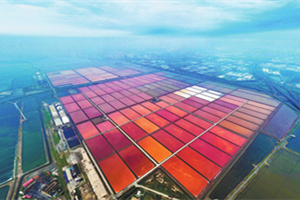Tianjin Updates
2025-12-12
Salt of the earth
In the vast, sun-drenched coastal expanse of Tianjin's Binhai New Area in early autumn, the landscape shimmers. Here, where the waters of the Bohai Sea meet the land, lies the Tianjin Changlu Hangu Salt Field, a place that has been continuously harvesting salt for over a millennium.
read more- Lenovo factory in Tianjin goes carbon neutral
- Wuqing district drives forward with commercial hub development
- Brain-computer interface gives hope to paralyzed people

Copyright ©? Tianjin Municipal Government.
All rights reserved. Presented by China Daily.
京ICP備13028878號-35









 Why Tianjin
Why Tianjin Investment Guide
Investment Guide Industry
Industry Industrial Parks
Industrial Parks





 Health
Health Visas
Visas Education
Education Sports and recreation
Sports and recreation Adoption
Adoption Marriage
Marriage



